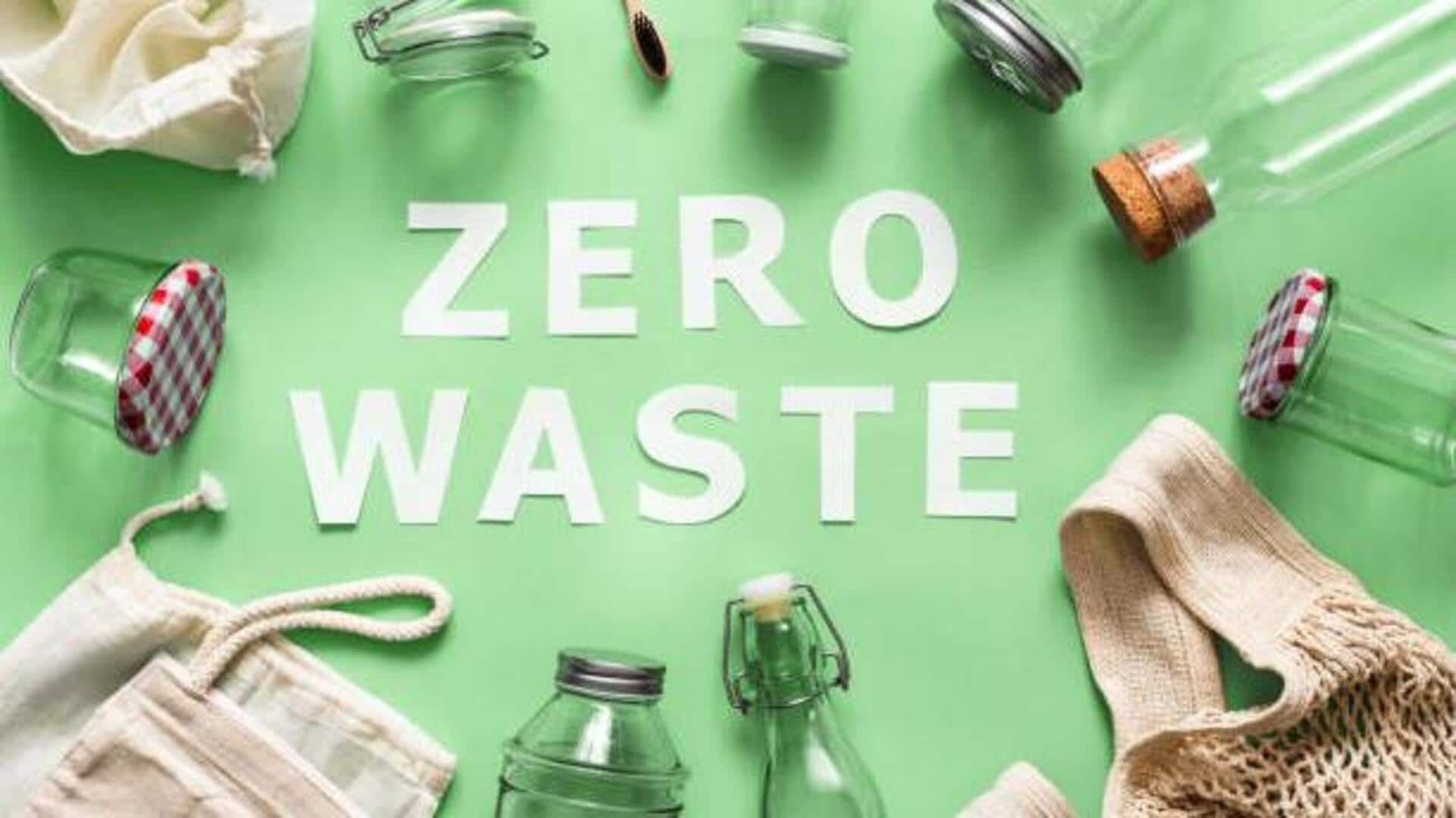
5 zero-waste habits to start today
What's the story
Adopting zero-waste habits can drastically minimize your carbon footprint. With just a few small, practical changes in your day-to-day life, you can make a difference towards a more sustainable future. Here are some actionable tips that will help you transition smoothly into a zero-waste lifestyle. From reducing plastic use to composting, these strategies are easy and effective for anyone wanting to make a difference on the planet.
Plastic reduction
Reduce single-use plastics
One of the easiest ways to embark on your zero-waste journey is by eliminating single-use plastics. Choose reusable bags, bottles, and containers instead of their disposable counterparts. This not only curtails waste but also saves you money in the long run. A lot of stores even offer discounts for bringing your own bags or containers, making this switch all the more enticing.
Composting basics
Embrace composting at home
Not only does composting help you manage organic waste, but it also enriches the quality of soil. You can set up a compost bin in your backyard or even indoors with a small container under the sink. Collect your kitchen scraps such as fruit peels, vegetable trimmings, etc. along with yard waste such as leaves, grass clippings, etc. Eventually, they turn into nutrient-rich compost for gardens/potted plants.
Sustainable choices
Choose sustainable products
Switching to sustainable products is another essential element of going zero-waste. Go for items made from recycled materials or those that are biodegradable and eco-friendly. For example, bamboo toothbrushes and cloth napkins make great alternatives to their plastic counterparts. Supporting companies that care for the environment also encourages more businesses to follow suit.
Homemade cleaners
DIY cleaning solutions
Not only is making your own cleaning solutions easier on the wallet, but it's also better for the environment. Most commercial cleaners use chemicals that could damage the environment when thrown away. Instead, use simple ingredients like vinegar, baking soda, and lemon juice to clean around the house. Not only are these safe for humans and pets, but also reduce packing waste incurred from store-bought products.
Conscious buying
Practice mindful consumption
Essentially, mindful consumption is to be cognizant of what you buy and how it affects the environment. Ask yourself if you really need to buy something or if there's a more sustainable option. Buying second-hand items decreases demand for new ones, saving resources required during production cycles. Further, supporting local businesses usually means lower carbon emissions since transportation distances are shorter.